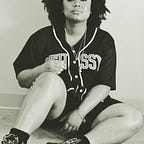An Indie Artist’s Guide to Getting Press
A lot of people have been asking me who does my PR work and how I received so much press over this past year.
Short answer: I pitched my story.
I was covered by 19 media publications this year including 3 newspapers, 3 magazines, 9 blogs, 1 podcast, and 3 radio interviews. I didn’t have a big budget to hire a PR company (I didn’t have any budget for this actually), I didn’t have a manager to sell me as their artist, and I especially didn’t have a big name for myself (my debut music project was just April of this year).
What I did have was a story, writing skills, and the ability to research.
Here are a few tips on getting press as an indie artist.
1. Have a Story
As an indie artist just starting out, I knew I had to put in a lot of work to get my name out there. Being new on the scene I wasn’t sure where to start, but I knew I had a story to tell.
My first project “Love Sucks!” was inspired by getting dumped at an ice cream shop. Although this story was a little embarrassing, I knew relationship problems were relatable, so I wrote about it.
What I’ve learned as a new artist is that a lot of people won’t get to know your music until they know more about you. Tell your story. What inspired you? This project? Your single? How did you start making music? Where do you see yourself going in music? What was happening in your life when you made a particular song/beat/project? All artists have a story — tell it. The people want to know.
2. Do Your Research
After I had my story thought out and written down, I had to figure out who would listen.
I asked myself 3 questions: 1. Who is covering music? 2. Who is covering music right now? 3. Who is covering music similar to the music I create?
I started by Googling artists in my city. I Googled artists that I know have been featured in music publications, and create music in a similar genre. When I found articles written about artists from my hometown making similar music, I wrote down the publication and the author of each source.
After documenting the publications and writers I found, I followed them on social media and started reading their old stories. I found that some of these writers covered music artists all the time, and some only covered a particular story related to the artist because it aligned with their brand. This was important to know once I started pitching.
3. Pitch Your Story
I had a story and I had a thorough list of publications and writers to pitch to, now it was time to pitch. I think this is where a lot of artists mess up in the process. It’s not only important to send a well crafted email, it’s key to make it personalized.
When creating an email you should introduce yourself, give a short bio, tell them how you heard about them/what you like about their writing, plug your ask (do you want them to cover your music? Cover a show? Interview you?), add links to your music and previous media publications for reference, and thank them for their time.
Don’t do this:
Subject Line: Best New Music Out the City!
Body: Listen to my new project it’s fireeeee!! (inserts broken link to music)
4. Follow up
I’m going to be honest. Your email is probably not going to be read. If it is read, it’s probably going to get lost with the other hundreds of emails the writer receives that week. You have to follow up.
I pitched my story to over 50 different media sources (local, regional, and national). Some emailed back within a day, some didn’t respond till after a follow up, and some didn’t respond at all. Send a quick follow up email a few days after your first one if you haven’t gotten a response. If there is still no response after you’ve followed up twice, my advice is to let it go and circle back to them when you have something new to pitch. Maybe the first one wasn’t the right fit.
5. Make Great Music
Not much to say here. Just make quality music. If you want people to listen, fans and media alike, make sure you have a quality sound. Do NOT send unmixed or unfinished music to anyone. This should go without saying but no one cares about your half-finished song that you (and only you) know is going to sound great once it’s mixed.
6. Form Relationships
You formed your story, you did your research, you sent an email shooting your shot and it sunk. You’ve been covered by this newspaper and that magazine, congrats!
Share the post! Again and again and again! Engage with the writer. Engage with the people sharing the post. Thank the writer for covering you. Build those relationships with the writers that went out of their way to capture your story. When you show that you appreciate them, they’ll be on the look out for more work from you in the future.
As an indie artist, you’re going to be spending a lot of money on your music. Until you reach a level where you don’t have the time to do this yourself or you have money budgeted to hire someone to do your PR work, do it yourself. All it takes is a little effort.
